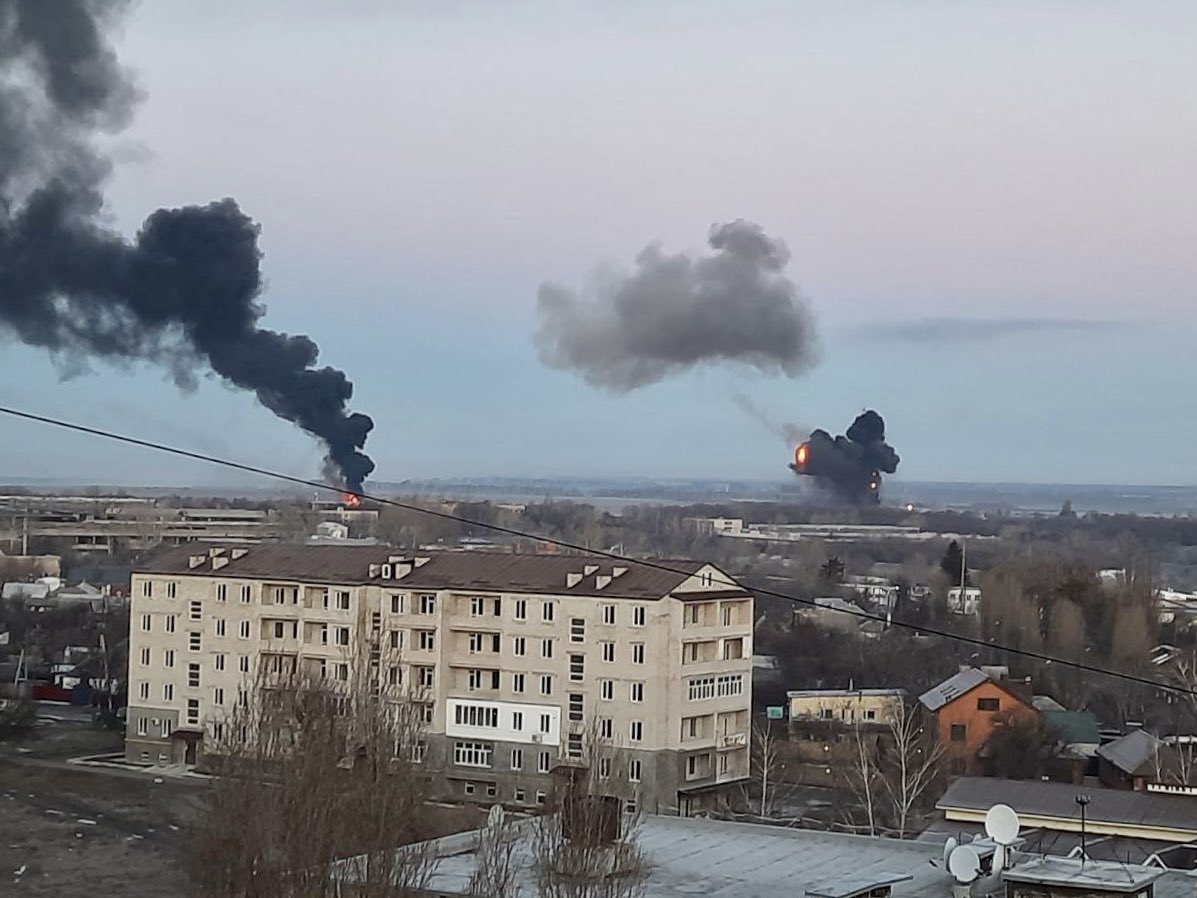What is happening in Ukraine right now is replete with obvious parallels from recent history — parallels from which Russian President Vladimir Putin ought to take lessons, as should policymakers in capitals such as New Delhi.
One obvious parallel is the Cuban missile crisis. Like President John F Kennedy in 1962, Putin has dug in his heels not to allow nuclear weapons of a superpower across the ocean to be planted at his doorstep — weapons meant explicitly and menacingly for his country.
To the extent that parallel applies, Putin was being defensive — and one cannot fault him for that. Until Monday, his sabre-rattling seemed to be aimed at preventing the Western bloc from including Ukraine — and, by implication, other countries immediately bordering Russia — in the NATO military alliance.
However, Putin has gone beyond that now, declaring the independence of two eastern portions of Ukraine, which were already under Russian control. Not just that, his speech on Tuesday clearly stated that Ukraine is essentially a part of Russia, with no right to a separate existence.
That is akin to the invasion of Cuba by US-backed mercenaries at the Bay of Pigs, just around the missile crisis. Only, Putin sounds very much like he is going to do what Kennedy refused to do, i.e., send US troops to back those mercenaries — to take control of parts of Cuba, if not all of it.
Many in Kennedy’s security and military top ranks wanted him to do that, but he held firm, even at risk to his political survival.
Comparisons with Hitler now apply
Putin’s speech switched the historical parallel from the Cuban missile crisis to Hitler’s actions against Czechoslovakia in 1939. He first got Western powers such as Britain (under Neville Chamberlain) to agree to his taking over bordering areas of Czechoslovakia which had a largely German-speaking population.
Hitler gave a guarantee that he would stop there. Instead, he took over all of Czechoslovakia, setting the stage for the second world war.
No wonder, many observers are talking of what Putin has done as sparking the third world war. For, unlike Hitler’s pact in 1938, Putin has made his declarations unilaterally. Even his spy chief seemed to want to stop him during the televised meeting at which Putin publicly made his decision.
Soviet experience in Afghanistan
Putin ought to take a lesson from his own country’s experience when it was the Soviet Union. In a similar intervention, in response to a local request, the Soviet army entered Afghanistan in 1979. Over the next decade, it got bogged down in a war that was financed and armed by the West, which finally helped to bring down the Soviet Union.
Not only in the West, but across the world, there seems to be widespread public dismay at what Putin has done, and support for actions to stop Russia from dismantling Ukraine.
The US, the EU, and a host of individual European countries are sure to send vast amounts of war supplies to Ukraine. Some of them will send military trainers, even mercenaries, too, although they are unlikely to send in armies openly to fight Russia on Ukraine’s soil.
For, the US is still licking the wounds incurred from its direct interventions in Afghanistan and Iraq. In fact, a host of Western armies have just vacated Afghanistan over the past year. They will be in no mood to go openly to war so soon. Sanctions are likely to be their biggest weapon, apart from arms, money, equipment, training, and mercenaries.
Differences between the two Iraq wars
Putin, too, would do well to take a lesson from not just Afghanistan, but also the Iraq wars. The difference between the first Iraq war, prosecuted by George Bush Sr. in 1992, and the Iraq invasion in 2003 hold a salutary lesson.
Bush Sr. took care not to try and occupy Iraq but just liberate Kuwait and leave. Bush Jr., on the other hand, sent the armies of those that joined his ‘coalition of the willing’ gung ho into Iraq with ‘shock and awe’ tactics that came a cropper quite soon.
While Biden is unlikely to make that mistake, Putin’s armies could get bogged down if the Ukrainian forces show grit, and smartly utilise the ample backing they will get from the West.
(David Devadas is the author of The Story of Kashmir and The Generation of Rage in Kashmir.)
[Disclaimer: The opinions, beliefs and views expressed by the author are personal.]

















